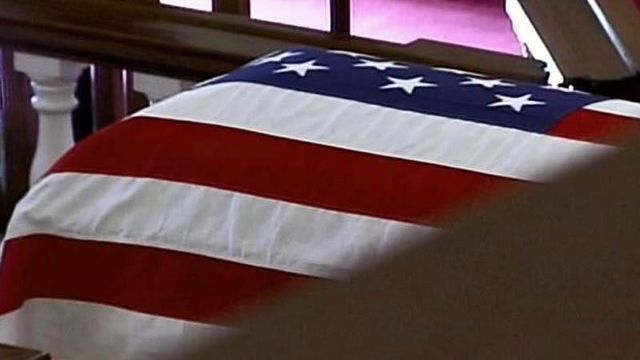Local News
Fort Bragg Soldiers Charged With Hardest Job Imaginable
Charged with what they say is one of the hardest jobs in the military, casualty notification officers help families of fallen soldiers cope.
Posted — UpdatedFAYETTEVILLE, N.C. — More than 3,200 U.S. troops have died in Iraq in the past four years. After each loss, two soldiers in dress uniform, known as a casualty notification team, are charged with delivering the news to a husband, wife, mother or father left behind.
"It's never easy," says Chaplain Larry McCarty, who accompanies other soldiers to tell military families their loved one has been killed. "It's always a gut-wrenching terrible time."
Since the war on terror began, 119 Fort Bragg soldiers have been killed in Iraq and 30 in Afghanistan. Fort Bragg casualty teams have had to notify 56 local families of their loss.
"You have a sinking feeling in your stomach because you know you are about to be part of someone's worst nightmare," McCarty said.
Soldiers tasked with the job say it is also a nightmare for them.
"You knock on the door and you recite that little phrase, 'On behalf of the Secretary of the Army, we regret to inform you …,'" said 1st Sgt. Edward Weihl, an engineer who has been the bearer of bad news three times. "At that point right there, it's hard."
Every family member reacts differently. Some collapse. Some scream and cry. Others get angry.
But the notification team has backup. Once its job is done, soldiers like Capt. Annette Garrett step in to help the family cope.
"I'm the person that they call sometimes when they want to know more and also when they want to cry," Garrett said.
Casualty assistance officers spend 45 days with the family helping with the funeral, insurance and relocation.
"It drains you emotionally because, once you become part of the family, you feel the pain. You know the loss," Garrett said. "You may not have met the soldier, but you know the loss."
But as hard as is, they said they know their job is a necessary one. Without them, families would have no one to turn to at the moment they need help the most, and that is what keeps them going.
"It's not so much what you say to them but that you're there. You hold them, cry with them and pray with them. They never forget that," McCarty said.
"It's an honor to do it," Weihl said.
• Credits
Copyright 2024 by Capitol Broadcasting Company. All rights reserved. This material may not be published, broadcast, rewritten or redistributed.





